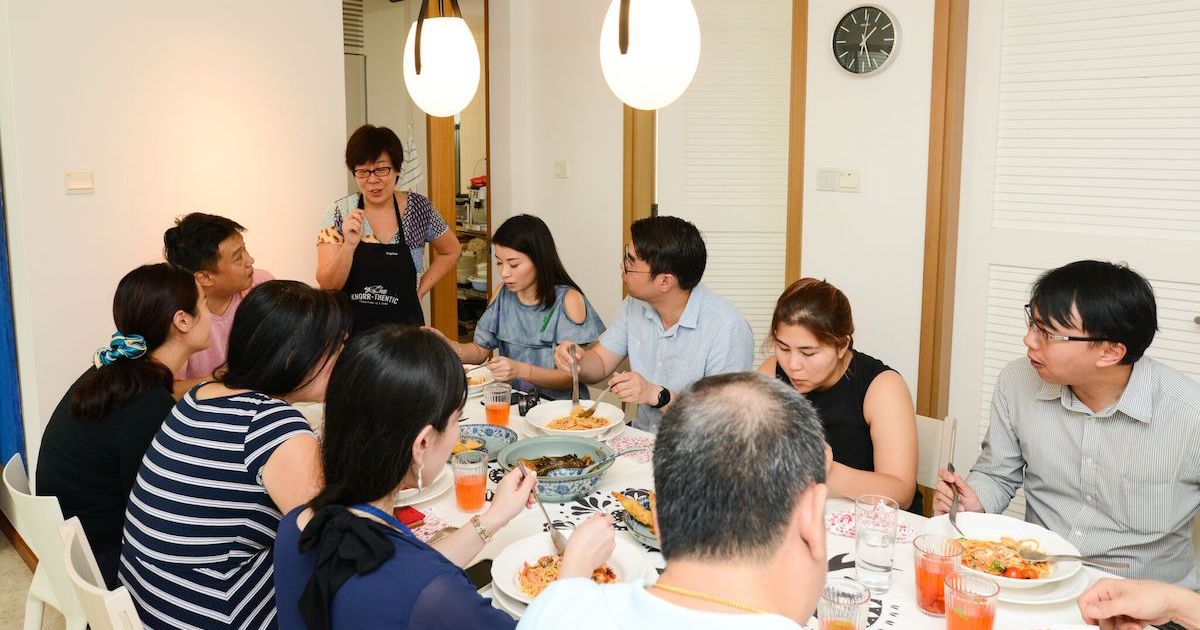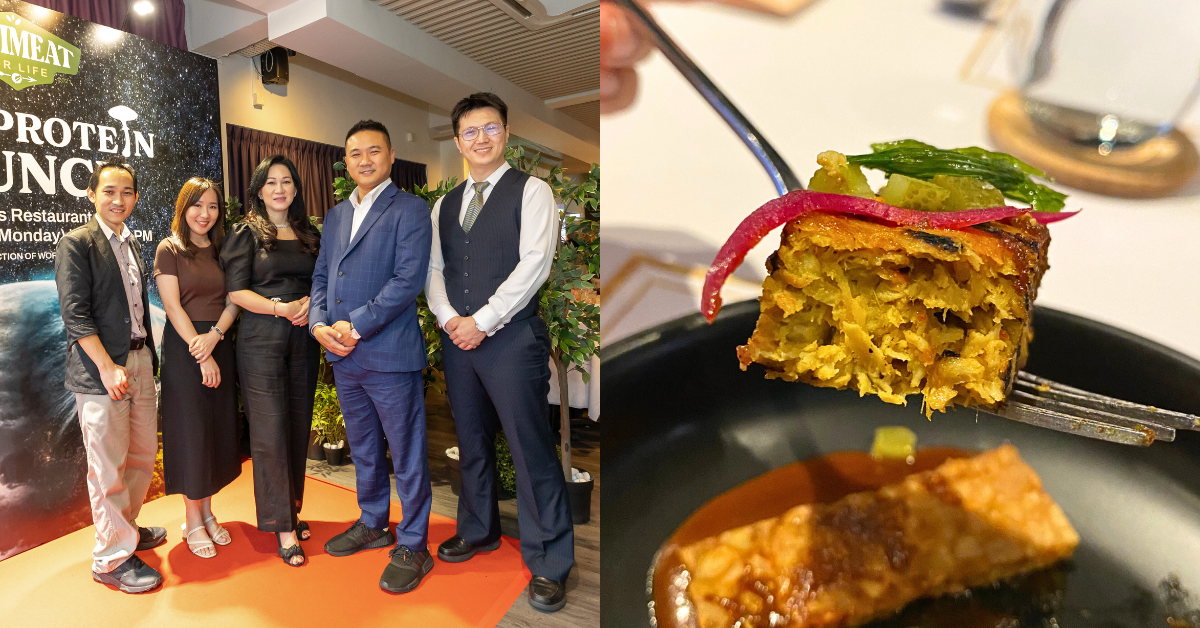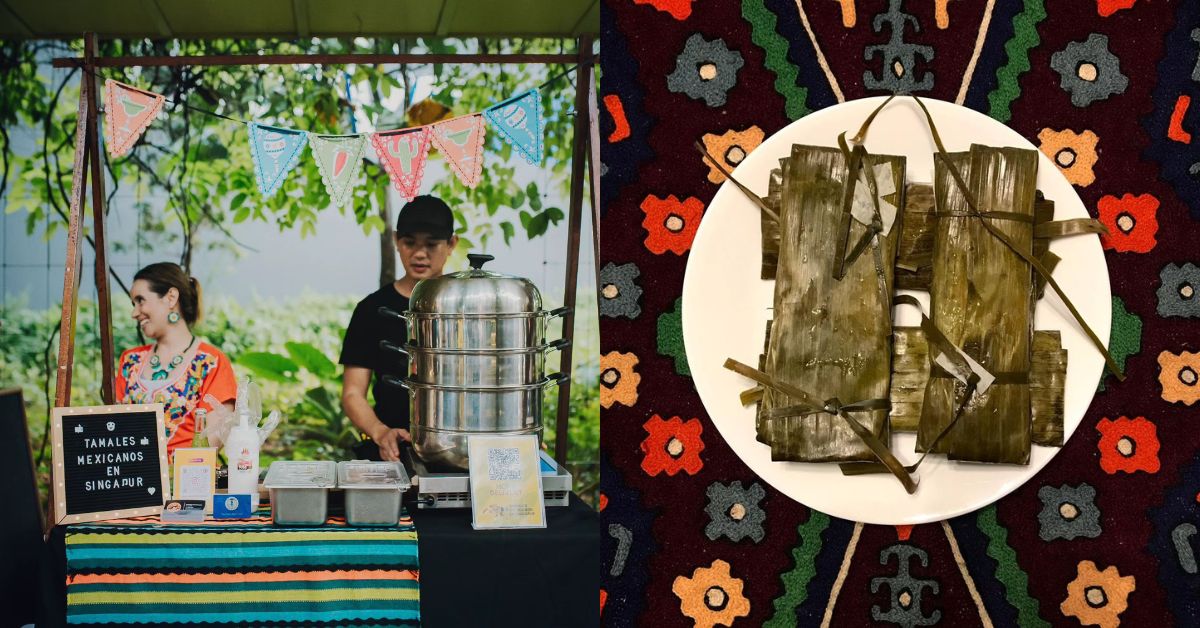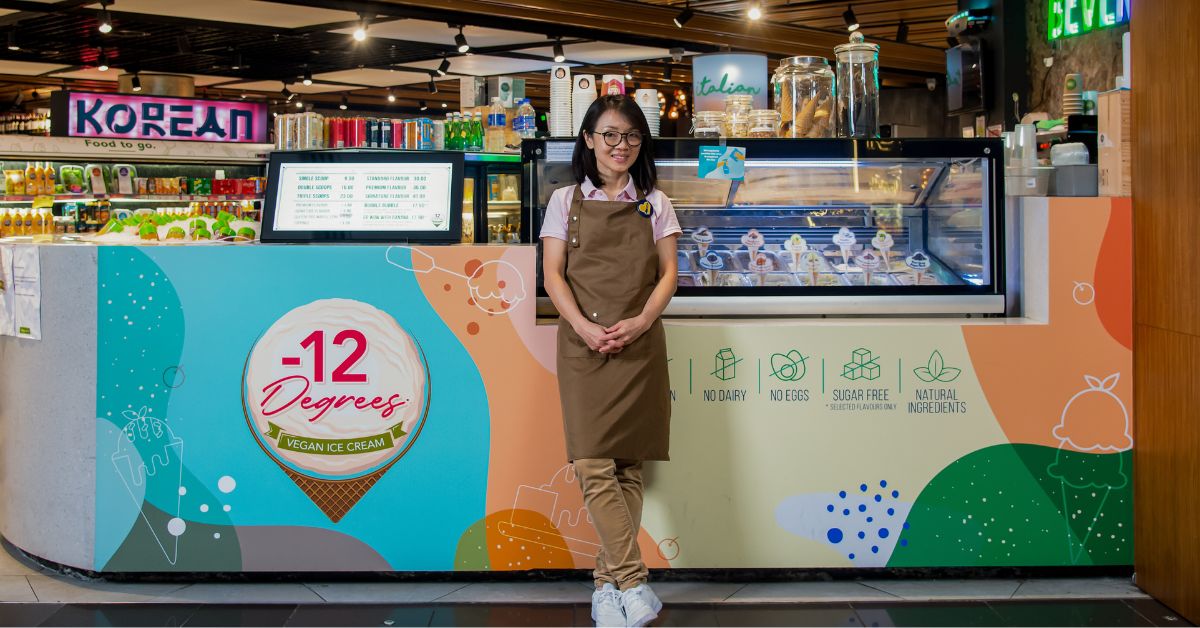There are times when you crave comforting home-cooked meals, but you just can’t afford to cook – either you’re not a domestic goddess, or you’re just too busy (or lazy) to cook.
So what do you do in times like this? Call your mum to cook for you?
This is where Dine Inn comes in.
Founded by celebrity chef Eric Teo and foodtrepreneur Luke Lee early this year, Dine Inn is the latest addition to the burgeoning meal-sharing industry in Singapore.
This duo is undoubtedly well-versed in the food and beverage (F&B) industry. Luke for one, is currently involved in 7 F&B outlets and is running his own hawker stall selling handmade ‘chee cheong fun’.
He also organises F&B events such as Singapore Food Festival, as well as imports and distributes wine and spirits.
“With my experience and unique perspective of the F&B industry, I realised that there is a gap in the market for home-cooked food,” said Luke.
This prompted him to rope in Chef Teo, who has over 30 years of culinary experience, to kickstart a business that “shares a taste of home” – which is Dine Inn’s motto.

“Singapore is a food haven – Singaporeans love to eat and increasingly, we are seeing more people who cook, and are concerned about eating healthy. Therefore, Luke and I wanted to create a platform that can allow home chefs to display their culinary talent and dishes, while at the same time, allowing guests to enjoy nutritious home-cooked meals,” said Chef Teo.
“Ever came back from the holidays and all you crave for is your mother’s cooking? I think home-cooked comfort food has a special place in our hearts. It is the universal language of love and sincerity. Sharing home-cooked food connects people together and helps to create a stronger community.”
Luke added the concept of sharing home-cooked food has always been part of his life. “When I lived in Jurong as a child, both my parents were working, so arrangements were made with my neighbour to provide lunch for me,” he recounted.
As such, this brainchild of theirs – which is available on both desktop and mobile – aims to be a “one-stop community marketplace” that connects the makers and lovers of food.
AirBnb For Food
In Singapore, at least five similar start-ups have sprung up over the past 10 months (we have previously covered Share Food Singapore and BonAppetour). So what sets Dine Inn apart from the rest?
Unlike a regular food business, Dine Inn is more than just a transaction: it operates in a social context where it lays the foundation to foster community spirit and personal empowerment.
Also, according to Luke, Dine Inn is currently the “most comprehensive meal-sharing platform”. It offers a variety of home-cooked dishes, ranging from special diet meals such as confinement, gluten-free and vegan meals, to customised bakes and for small group catering.
Prices of dishes vary from $2.50 for a Chicken Teriyaki Slider, to $55 for a Thai Milk Tea cake.
Dine Inn also caters to anyone and everyone, pointed out Luke.
“You could be a young couple living in Punggol, too busy to cook and order your dinner by self-collection from your neighbour. Or you could be a working professional working in the CBD, tired of commercial food offerings [so you order our home-cooked selections] by delivery.”
“You could also be a tourist or local foodie, looking for a culinary adventure, [ordering a] chef’s menu and dine at the host’s place. [Not just that, you could] be planning a special birthday party, looking for a customised cake, and our home chefs can make your wish come true.”
Dine Inn primarily offers four different types of services: home-cooked food for self-collection or delivery (for an additional $10), dine at a host’s place, hire a chef, or order a ‘tingkat’ (customised tiffin).

Dining at a host’s place was personally interesting to me. Would anyone pay to dine a stranger’s home?
According to Luke, guests nowadays tend to be “more adventurous and crave unique dining experiences”.
“With meal-hosting, it is more relaxing and intimate as diners can have a private space to themselves, customise their food and interact with the hosts.”
Think of it as Airbnb for food, I guess – except instead of staying over, you get the chance to dine in another person’s home and experience local cuisine through your hosts.
On the other end of the spectrum, Dine Inn also offers a private dining experience. If you can’t afford to book an entire restaurant, Dine Inn has got you covered.
You can have a private dining session with your own home chef in a cozy environment, and prices start from as low as $20 per guest.
If you are concerned about food and hygiene, there’s no need to worry. To ensure food safety, all hosts must complete the Basic Food Hygiene Course (approved by Singapore Workforce Development Agency) and obtain a Statement of Attainment (SOA).
“The certificate, together with its date of attainment must be submitted to us before a host can be published on the platform. We will also be conducting mandatory house visits for hosts to assess their home cleanliness,” said Luke.
Learning From The Ground
Meal-sharing services gel well with the trend of the sharing economy, an economic model in which assets or services are shared among Internet-savvy consumers, either for free or for a fee.
This can be seen in the rise of lodging portal Airbnb and car-pooling services such as UberPool.
“We have a unique multi-layer sharing economy model, where we work with different partners to fulfil each booking. For example, our hosts will cook and the food will be delivered by our delivery partner.”
“The main challenge is to ensure seamless integration from start to finish and to ensure that each touch point adds on to the entire Dine Inn experience.”
To have a clearer understanding of the entire supply chain, Luke even took up a Basic Food Hygiene Course to become a Dine Inn host. According to him, this puts him closer with the hosts and guests so that he can better appreciate what works and what doesn’t.
On top of that, he is also undergoing a Motorcycle Class 2B course so that he can personally experience and understand the last mile delivery process.
Complementing, Not Challenging The F&B Industry

Currently, there are more than 400 home-cooked dishes listed on Dine Inn, ranging from full-course meals to appetisers and desserts. However, Dine Inn is “in the process of on-boarding more than 200 interested hosts to join the Dine Inn family,” said Luke.
“With this platform, people are more comfortable in sharing their personal assets, in this case, their kitchens. We have seen a 50% increase in sign-up rates for home chefs in the last few months.”
In fact, the hosts too have been experiencing a “steady growth in sales each week”.
With such good response so far, is it possible for Dine Inn to disrupt the F&B industry in time to come?
“The Singapore F&B industry has a significant addressable market with an estimated sales value of close to S$9 billion. In comparison, the estimated sales for Dine Inn only accounts for less than 1% of the market. Therefore, from a numbers point of view, we do not disrupt the industry.”
“Instead, we will complement the F&B industry by meeting the growing demand for home-cooked food. In the long run, consumers will have more dining options and the industry will be more vibrant and forward looking.
“Singapore is just the appetiser. We want you to feel at home wherever you go. By the end of 2020, we hope to be in more than 100 cities where everyone and anyone can share a taste of home.”
Featured Image Credit: Dine Inn








